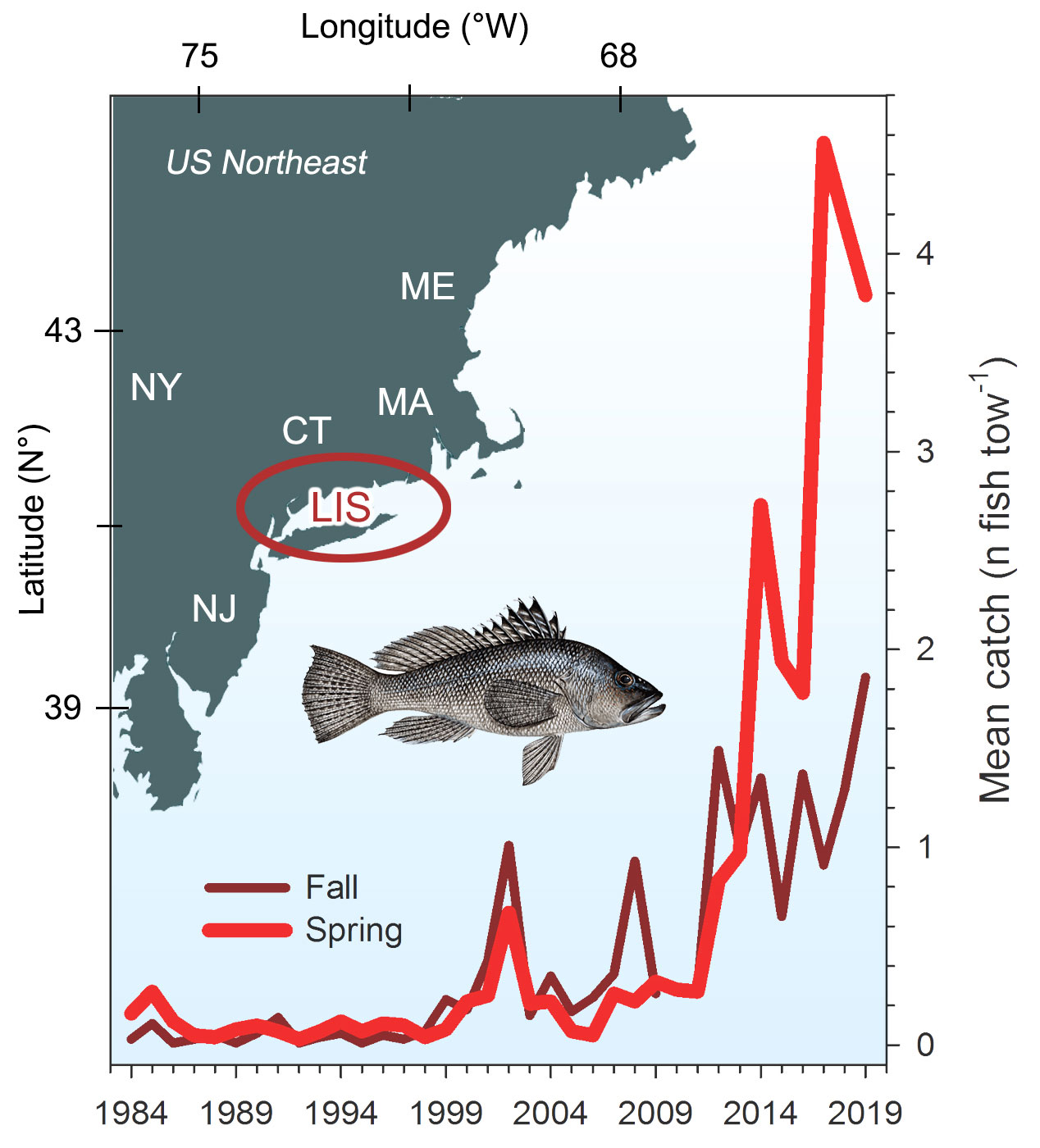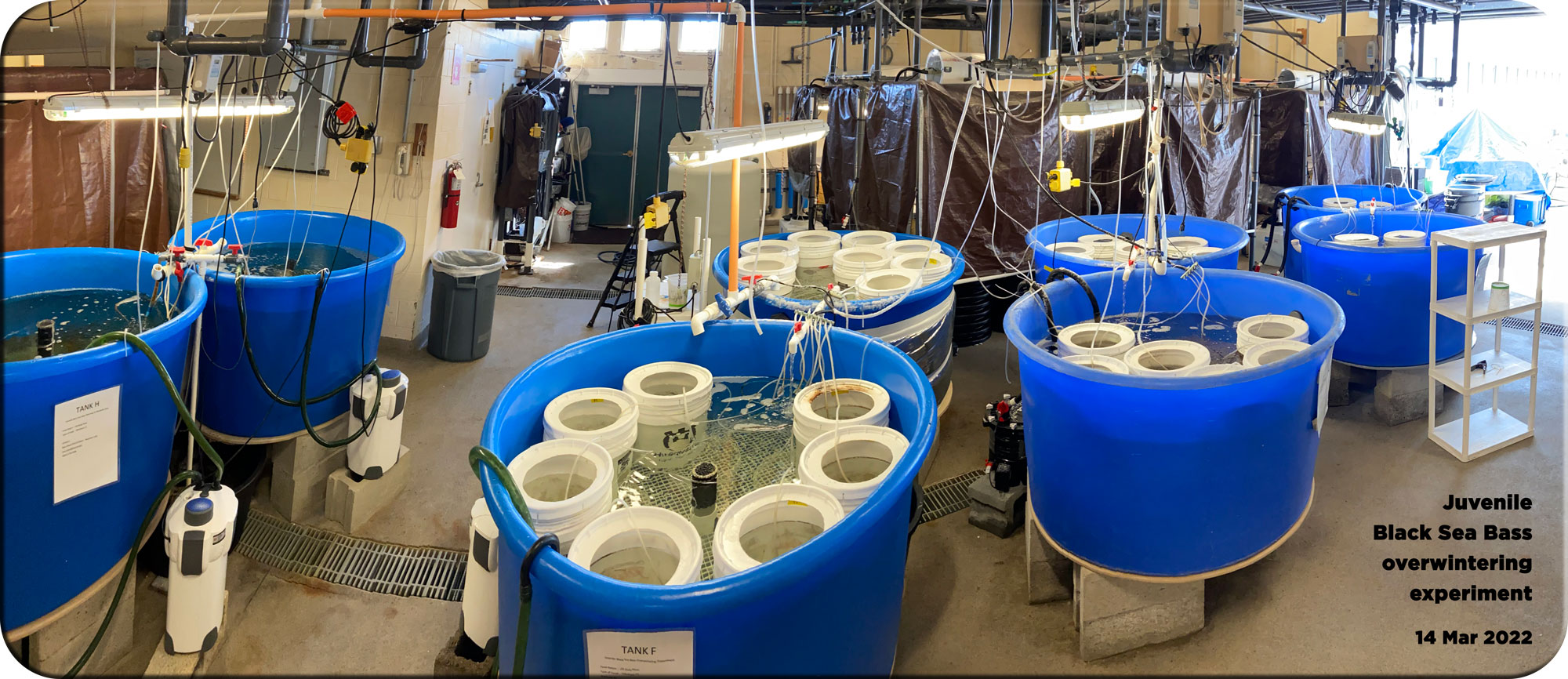27 December 2023. We are excited to announce that Transactions of the American Fisheries Society just published our first large experimental study on Black Sea Bass overwintering! The work is part of Max Zavell's PhD research and reports on temperature- and food-ration dependent overwinter growth in Black Sea Bass juveniles from Long Island Sound. We reared juveniles individually in two separate experiments, one applying three static temperature treatments (6, 12, 19°C) and another using a seasonal temperature profile to mimic the thermal experience of juveniles emigrating to their offshore overwintering grounds coupled with various food treatments.
We found that Black Sea Bass juveniles showed positive overwinter growth even at temperatures as low as 6°C. However, the best temperature for growth, survival, and lipid accumulation was 12°C, which is close to the presumed conditions at offshore overwintering habitats of this species.
Congratulations, Max, to this great paper! Also, congrats to undergraduate student Matthew Mouland, who helped tirelessly with the rearing and has now deservedly become a co-author.
- Zavell, M.D.*, Mouland, M.E.P., Matassa, C.M., Schultz, E.T., and Baumann, H. (2023) Temperature- and ration-dependent winter growth in Northern stock Black Sea Bass juveniles. Transactions of the American Fisheries Society Published online 27 December 2023


